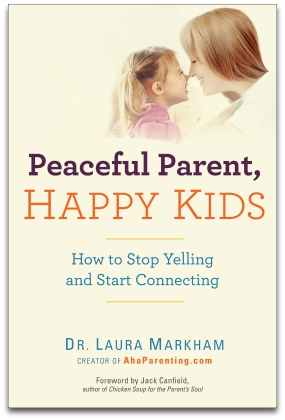 In my doll’s tea set, there were no cups without saucers.
In my doll’s tea set, there were no cups without saucers.
If the mudguard on my bike was crooked or rattled, I’d insist that my Dad repair it before I could ride my bike again. (We jokingly called it ‘Rattly Mudguard Syndrome’ (RMS) in our house when things weren’t quite how they should be.)
My floral duvet could be nothing other than symmetrically placed on my bed each night. I had cleverly mastered the art of measuring it by becoming a snow angel centered in my bed to see where the duvet fell across my legs. Only then could I sleep.
Well, it took me a long time to drift off as I mentally prepared and played out everything I had to remember for the next day. Forgetting was not an option.
As a child, it was a standing joke in our house that I liked things a certain way.
At school, I refused to complete an entire page of sums, but instead would go to the teacher and ask they mark each one. I had to know that I’d got it right before I continued.
As I got older, exams would send me into meltdown as I didn’t have the luxury of time to perfect my work.
Every mistake felt like a kick in the guts. Every mistake was a reminder of how wrong I was as a person. I would exhaust myself avoiding that shameful heavy feeling which repeatedly reminded me that I wasn’t good enough.
How Can we Break the Cycle?
 As amusing as the above anecdotes are, living with perfectionism is far from funny. As a recovering perfectionist, I want to explore this further to bring awareness and to help break this cycle in families.
As amusing as the above anecdotes are, living with perfectionism is far from funny. As a recovering perfectionist, I want to explore this further to bring awareness and to help break this cycle in families.
Oddly enough we can break the cycle with two As.
No! Not ‘A’ grades from the teacher, but through AWARENESS and ACCEPTANCE.
For lots of us, our self-esteem is precariously placed outside of us. When we rely on external things to make us feel good we lose our power. What other people think of us, our achievements, and how we appear to other people is more important than how we feel inside.
Isn’t it sad that our achievements, which can be as simple as ticks on our daily to do list, when left incomplete have the power to make us feel terrible?
We’re seeking acceptance from others because we don’t accept ourselves.
In my work as a Child Coach that specializes in helping children feel gorgeous from the inside out, I see so many children show up who don’t feel loved and accepted as they are. That tells me there are a lot of parents who feel like that, too. Don’t worry – you’re in excellent company.
See your Child in All Their Magnificence and Innocence
Often when we label our children as ‘good’ or ‘naughty,’ they grow up thinking they are their behaviour. None of us are either one thing or the other – that’s very black and white thinking.
We’re constantly changing throughout the day depending on how we feel. To see ourselves as all ‘good’ or all ‘bad’ all of the time creates perfectionism.
I can remember so many times as a child exhausting myself and trying harder to be ‘good’.
I was only good if I toiled over my homework for hours and got good grades.
I was only good when I remembered everything I had to take to school, when I did as I was told, and when I preempted what other’s wanted from me.
I was an excellent mind reader. A hyper vigilant detective seeking out all the wrongs that needed to be made right.
Unfortunately, in the end I concluded and internalised the message that I must be very bad. Quite terrible actually, because like all children who are learning, I was getting it wrong all the time.
Isn’t that how we learn? If you’re not making mistakes, then in my mind you’re not learning or experiencing all the adventure and diversity that life has to offer. That’s not living.
So, I didn’t grow up knowing that simply by being myself, I was a ‘good’ kid. What I failed to receive from my parents was positive mirroring; of knowing that I was innately good as a human being.
Instead, I believed that my actions and behaviour had an impact on how other’s loved me. If I was ‘good’ then I was lovable and if I was ‘bad’, then I was not. It’s that black and white thinking again!
It was as if I had to meet my parent’s needs ahead of my own in order to feel ‘good.’ Of course, my parents’ capacity to love me had nothing to do with me, and everything to do with how much they loved themselves.
So, that’s how perfectionism, or the need to be ‘right’ or ‘good,’ manifested in my behaviour. Everything had to be just so and it could not be wrong. In a strange way, it gave me some power back when I felt so wrong inside.
The bike didn’t rattle, the tea set was complete and my bed – what should have been a place of safety and relaxation had to be symmetrical bed before I would entertain the idea of resting in it. Sleep rarely came easily to a little one with such a big busy brain.
That’s what perfectionism does. It sucks the life out of you. Your world is seen through that black and white filter. All your time is spent righting wrongs. You can’t stop. There aren’t enough hours in the day. Really when you think about it, it’s an endless quest to be seen a certain way and to be loved.
How miserable not to recognise that you are lovable just as you are. It saddens me deeply to recall how so much of my precious childhood was stolen in that way. I gave myself the job of being responsible for righting all the wrongs. That’s not a job I would give my worst enemy.
 Still now, 44 years later, I find it tricky to sit with incomplete tasks or unspoken words or messy relationships. Life is messy, and that’s something I’m still learning. We’re all a work in progress.
Still now, 44 years later, I find it tricky to sit with incomplete tasks or unspoken words or messy relationships. Life is messy, and that’s something I’m still learning. We’re all a work in progress.
When we feel really bad, we become ashamed of who we are. There is no shame in being human.
You’re neither a good nor bad parent. You simply are a human being who has loving intentions to raise your child in the the best way possible. That doesn’t mean you don’t get it wrong (you have to so you can learn on the job), but it means that you can be compassionate and cut yourself some slack starting from now.
You Can’t Give Away What You Don’t Have
The more love and compassion you have for yourself, the more you will be able to give to your child.
I have a really mean inner voice which requires daily monitoring. She drives me to be the best, to know it all, to do it all and doesn’t allow me to rest. I feel good when I’m ticking things off my to do list, which by the way, doesn’t feature self care in any of its arduous tasks. What about you?
If you’re a parent who leans towards liking things just so, then you will have a voice like this too or an unrealistic set of standards which mean you will need to externally present in a way which is viewed acceptable by the outside world.
Where do these standards come from? Who gets to decide what is acceptable and what isn’t?
Perfectionism Leaks Out in Your Actions
 When faced with a mishap or curve ball, you’ll say things to your child like, ‘Oh never mind and that doesn’t matter,’ because with your good intentions you don’t want them to feel the crushing shame that you feel when you make a mistake.
When faced with a mishap or curve ball, you’ll say things to your child like, ‘Oh never mind and that doesn’t matter,’ because with your good intentions you don’t want them to feel the crushing shame that you feel when you make a mistake.
They need to feel something in order to learn from it and correct their behaviour. And they will.
In her book, Peaceful Parent, Happy Kids, Dr. Laura Markham agrees. “The mild feeling of shame — the prefrontal cortex clutch shifting — is how kids learn to shift themselves from “forbidden” behaviour to acceptable behaviour.”
And think about what you are doing in your day-to-day routine around the house? Are you fiddling with things until they are “just perfect?” Are you unhappy when your books aren’t where they should be on the shelves?
When things don’t go right are your actions matching your words?
 John Bradshaw, author of Healing the Shame that Binds You, says, “The job of parents is to model. Modeling includes how to be a man or woman; how to relate intimately to another person; how to acknowledge and express emotions; how to fight fairly; how to have physical, emotional and intellectual boundaries; how to communicate; how to cope and survive life’s unending problems; how to be self-disciplined; and how to love oneself and another.”
John Bradshaw, author of Healing the Shame that Binds You, says, “The job of parents is to model. Modeling includes how to be a man or woman; how to relate intimately to another person; how to acknowledge and express emotions; how to fight fairly; how to have physical, emotional and intellectual boundaries; how to communicate; how to cope and survive life’s unending problems; how to be self-disciplined; and how to love oneself and another.”
Children can sense your irritation and disappointment in them. They watch you. They observe your behaviour and mimic it. They watch you all day long, tidying, tweaking, changing and arranging life to be exactly as you need it to be.
This is your point of power: self awareness. Noticing (without judgement) when you’re feeling out of control. I always set to a list of chores or tidying when something irks me. When life feels like it’s getting out of control.
Doing More Doesn’t Control Anything
Accepting that I’m not in control helps me more. And isn’t so exhausting.
If this is you, it’s Ok. There is nothing wrong here. Please be kind to yourself.
I have found that, as Carl Rogers, one of the founders of the humanistic approach to psychology, says, “The curious paradox is that when I accept myself just as I am, then I can change.” I have the energy and strength to look at myself and accept me for who I am. Not the perfect version of myself that I wish I was.
I’ve put together 5 things to be more aware of so you can start to break the cycle of perfectionism in your family.
1. Become aware of your inner voice by observing how you talk to yourself
To start off with it helps to write these thoughts down. I journal what comes to me on a regular basis. There is power in the pen. It will help you to see patterns in your thinking just like it helped me.
Here are some useful questions in your journaling:
- How critical is this voice?
- Where does this voice come from?
- Who made the rules of what is acceptable (perfect) and what isn’t?
- How damning is it when you make a mistake?
- How kind, compassionate and supportive is it?
- How much does it worry about what others think?
- How focused is it on outcomes instead of feeling good?
- Where can you let go of some of those thoughts which do not serve you?
Read through your journal occasionally to see if you can recognize patterns or triggers. Once you know what is triggering your perfectionism you can start to change it.
2. Aim for progress instead of perfection
 Make it about effort and intention instead of outcomes. I hate reward charts because they focus on outcomes and not feelings. Humans are mostly motivated by feeling good.
Make it about effort and intention instead of outcomes. I hate reward charts because they focus on outcomes and not feelings. Humans are mostly motivated by feeling good.
Look back on where your family were this time last week or this time last year. Comment on how far you’ve come, not how far you have to go.
Embrace the wonderful mess that is life. Plans go wonky. Plans with small people go really wonky! Release the need to control the outcome. Instead notice how you choose to respond to it.
It’s feelings that drive behaviour so it makes sense to tune into those instead. Prioritise good emotional housekeeping and strong emotional literacy as a family. When we’re pleasing others, we’ve tuned out from how we feel.
3. Have realistic expectations
Or none at all!
Remind yourself of what is age appropriate. Remind yourself that your child is always learning and trying their best. We’re all learning every day.
Every day your child is trying their best – even though sometimes it might not feel like that to you. Have empathy and try to understand what is going on for them.
Notice them as they are and without needing to change that. A little boy came to coaching last week with shorts on and his knees showed me that he’d been having lots of fun – they were filthy. I could hear the voice of my Mum saying ‘Oh no! Look at the state of you. Don’t you dare sit on my nice clean sofa with all that mud.’
Instead, how about: “Wow! You’ve had so much fun at the park, your knees have got a story to tell! What can you do before you sit down on the sofa?”
4. Don’t make them wrong when you don’t need to
Kids are going to get it wrong a lot because they’re learning. Make getting it wrong part of life.
I see anxious children who are so afraid of the consequences of making a mistake that they make more mistakes. It’s like having a boss who micromanages you and I know we all hate that!
Kids are going to show up with food around their faces, muddy knees, and a little unkempt. They live in the moment and are enjoying life. When did we get to be so uptight about how things looked? Always be pleased to see your child no matter what they look like or how they’re feeling.
In the book, The Emotionally Absent Mother, by Jasmin Lee Cori, she talks about using the phrase, ‘I’m so glad you’re here,’ whenever you greet your child. I love it. It’s so warm and welcoming.
Eradicate blame from your family dictionary. Role model good repair; how you can put things right or make them better when they go wrong. Instead of instructing your child to apologize, ask them how they feel instead. Their feelings will motivate them to do the right thing.
5. Don’t compare
Social media shows us snippets of other people’s lives when they’re at their best. A quick scroll through Instagram or Facebook on a bad day can leave us feeling less than and fed up with our little lot.
Instead of comparing your life with what you imagine theirs to be, focus on what you do have and what is going well. Are you placing importance on things which bear no value or input to your family’s happiness?
The 2-Minute Action Plan for Fine Parents
For our quick contemplation today –
AWARENESS: Every day notice something your child does with a good intention or with a concerted effort – especially when it doesn’t go according to plan. Make it about their character and personal qualities instead of their actions.
ACCEPTANCE: Start to notice when you feel the need to correct your child. Is it necessary, does it matter and will it help them?
What will remind you to do this? Have something to symbolise seeing the good which acts as a visual prompt: a positive mantra on the fridge, a piece of jewellery, a post it note strategically placed on your bathroom mirror or dash board of your car.
The Ongoing Action Plan for Fine Parents
Go out and buy yourself a beautiful journal and a nice pen to start your new journaling journey. Set aside time each day to write about all the things that set your perfectionism off.
Challenge your thoughts and where they come from. You may need help from a professional with this and that’s OK.
Explore the question: Where are you trying to be a perfect mother and what is a good enough mother? You might be surprised at how high a bar you are setting in trying to be the perfect mother.
Notice your shame buttons. What triggers your ‘I’m a bad Mum if I don’t do this…’ judgemental voice? Do you really need to do ‘this?’ Give yourself permission to be yourself. It is safe for me to make mistakes. Say it to yourself now!
Create family rituals around relaxation and just being. Not doing! Schedule them if you must. Factor in good self care. Take time out to and prioritise your needs. Have regular duvet / PJ days.
This is something I really needed to read today, thank you. ☺️
Thank you Lisa – this is a very important article.
🙂 I’m glad you found it helpful.
Thank you Lisa – this is a very important article. Perfectionism is a red flag that there is work to be done to uncover a negative belief that is driving it – likely “I’m worthless” or “I’m unloveable”. The perfectionist behaviour is then an attempt to establish worth or gain love. I learned through my daughter’s perfectionism what a pernicious trait it is – it can lead (and did) to eating disorders, substance-abuse and other forms of self-harm is left unchallenged.
Thank you so much for bringing this to the attention of parents in such an accessible way. I have blogged about this issue on my website as well.
Hello Anne, thank you for stopping by and commenting. I’m sorry to hear your daughter struggled with perfectionism too. It can be all consuming and as you point out lead onto something more serious. I don’t have a very good relationship with food either and punishing myself when angry – I stuff my angry voice down with food because it doesn’t feel ‘good’ (good girls don’t get angry!). I am becoming more aware of this now and tend to opt for a hot water bottle (cuddle) when I’m aware of my anger.